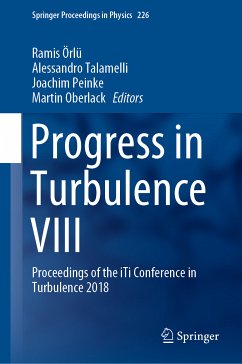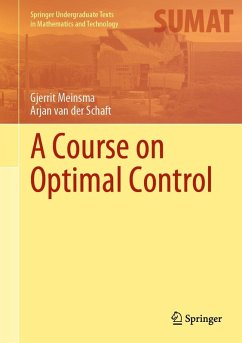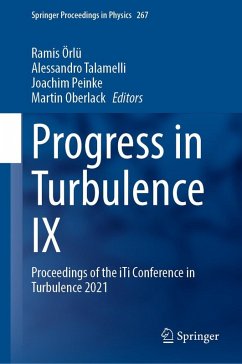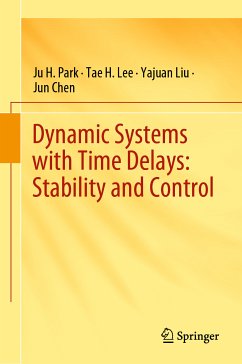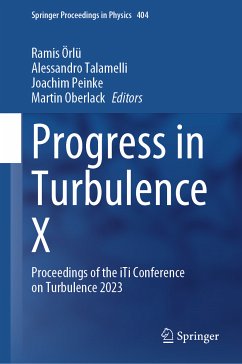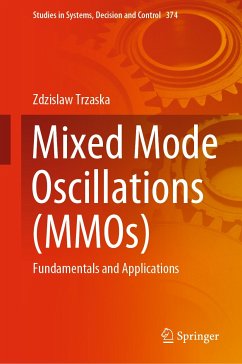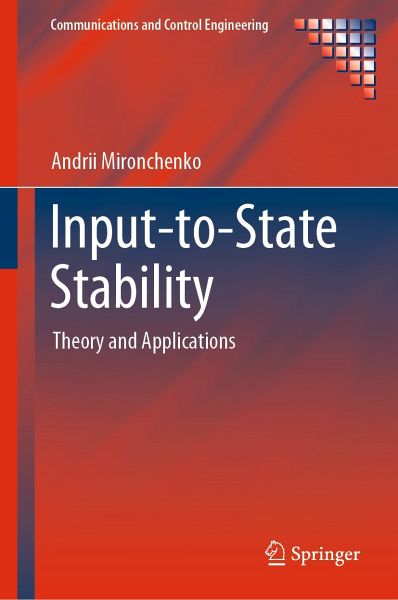
Input-to-State Stability (eBook, PDF)
Theory and Applications
Versandkostenfrei!
Sofort per Download lieferbar
128,95 €
inkl. MwSt.
Weitere Ausgaben:

PAYBACK Punkte
64 °P sammeln!
Input-to-State Stability presents the dominating stability paradigm in nonlinear control theory that revolutionized our view on stabilization of nonlinear systems, design of robust nonlinear observers, and stability of nonlinear interconnected control systems. The applications of input-to-state stability (ISS) are manifold and include mechatronics, aerospace engineering, and systems biology. Although the book concentrates on the ISS theory of finite-dimensional systems, it emphasizes the importance of a more general view of infinite-dimensional ISS theory. This permits the analysis of more gen...
Input-to-State Stability presents the dominating stability paradigm in nonlinear control theory that revolutionized our view on stabilization of nonlinear systems, design of robust nonlinear observers, and stability of nonlinear interconnected control systems.
The applications of input-to-state stability (ISS) are manifold and include mechatronics, aerospace engineering, and systems biology. Although the book concentrates on the ISS theory of finite-dimensional systems, it emphasizes the importance of a more general view of infinite-dimensional ISS theory. This permits the analysis of more general system classes and provides new perspectives on and a better understanding of the classical ISS theory for ordinary differential equations (ODEs).
Features of the book include: . a comprehensive overview of the theoretical basis of ISS; . a description of the central applications of ISS in nonlinear control theory; . a detailed discussion of the role ofsmall-gain methods in the stability of nonlinear networks; and . an in-depth comparison of ISS for finite- and infinite-dimensional systems.
The book also provides a short overview of the ISS theory for other systems classes (partial differential equations, hybrid, impulsive, and time-delay systems) and surveys the available results for the important stability properties that are related to ISS.
The reader should have a basic knowledge of analysis, Lebesgue integration theory, linear algebra, and the theory of ODEs but requires no prior knowledge of dynamical systems or stability theory. The author introduces all the necessary ideas within the book.
Input-to-State Stability will interest researchers and graduate students studying nonlinear control from either a mathematical or engineering background. It is intended for active readers and contains numerous exercises of varying difficulty, which are integral to the text, complementing and widening the material developed in the monograph.
The applications of input-to-state stability (ISS) are manifold and include mechatronics, aerospace engineering, and systems biology. Although the book concentrates on the ISS theory of finite-dimensional systems, it emphasizes the importance of a more general view of infinite-dimensional ISS theory. This permits the analysis of more general system classes and provides new perspectives on and a better understanding of the classical ISS theory for ordinary differential equations (ODEs).
Features of the book include: . a comprehensive overview of the theoretical basis of ISS; . a description of the central applications of ISS in nonlinear control theory; . a detailed discussion of the role ofsmall-gain methods in the stability of nonlinear networks; and . an in-depth comparison of ISS for finite- and infinite-dimensional systems.
The book also provides a short overview of the ISS theory for other systems classes (partial differential equations, hybrid, impulsive, and time-delay systems) and surveys the available results for the important stability properties that are related to ISS.
The reader should have a basic knowledge of analysis, Lebesgue integration theory, linear algebra, and the theory of ODEs but requires no prior knowledge of dynamical systems or stability theory. The author introduces all the necessary ideas within the book.
Input-to-State Stability will interest researchers and graduate students studying nonlinear control from either a mathematical or engineering background. It is intended for active readers and contains numerous exercises of varying difficulty, which are integral to the text, complementing and widening the material developed in the monograph.
Dieser Download kann aus rechtlichen Gründen nur mit Rechnungsadresse in A, B, BG, CY, CZ, D, DK, EW, E, FIN, F, GR, HR, H, IRL, I, LT, L, LR, M, NL, PL, P, R, S, SLO, SK ausgeliefert werden.



